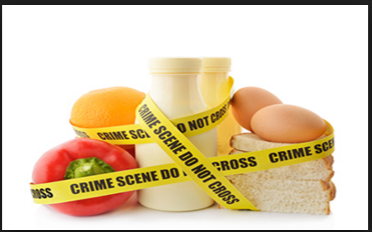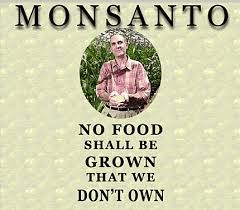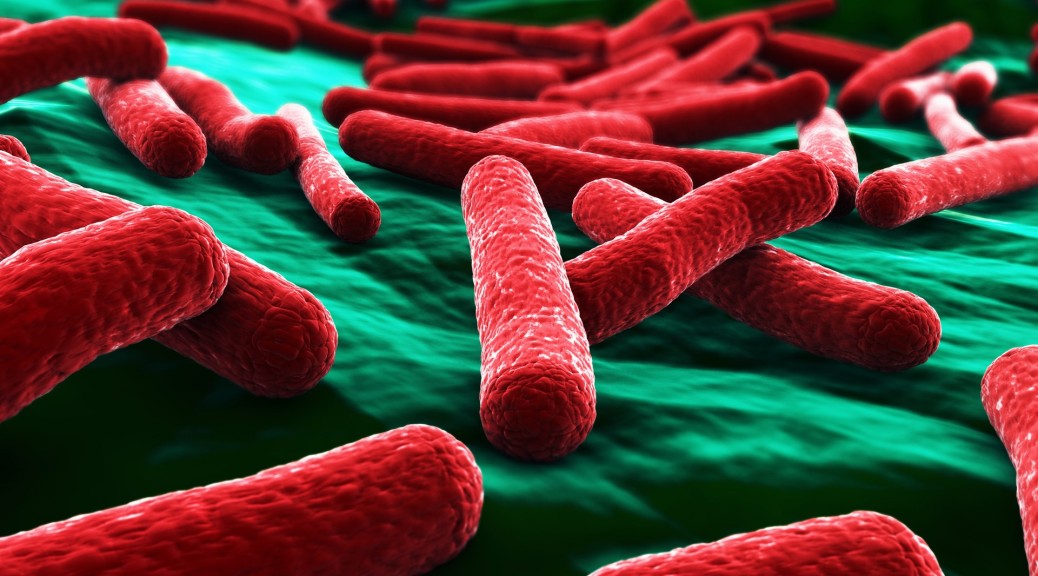 Most people tend to trust supermarkets, and just pick food that is ripe or looks delicious, but why? We all know there are government agencies such as the FDA and the USDA that supposably check our food and make sure it’s healthy for us to eat, but then why are there so many foodborne illness outbreaks every year?
Most people tend to trust supermarkets, and just pick food that is ripe or looks delicious, but why? We all know there are government agencies such as the FDA and the USDA that supposably check our food and make sure it’s healthy for us to eat, but then why are there so many foodborne illness outbreaks every year?
“CDC estimates that each year roughly 1 in 6 Americans (or 48 million people) get sick, 128,000 are hospitalized, and 3,000 die of foodborne diseases.” CDC
NPR did an article stating that only 19% of Americans trust our government, that means 81% of Americans don’t. If that many people distrust our government, then why do we trust them to make sure our entire food supply is safe to eat.
Marian Nestle’s article Resisting Food Safety does an amazing job of informing people of how the government lacks in protecting our food. She explains how the majority of foodborne illnesses today are caused by organisms we can’t see with the naked eye, such as  viruses and bacterias. Nestle makes a big statement in her article, “[…] although outbreaks of foodborne illness have become more dangerous over the years, food producers resist the attempts of government agencies to institute control measures, and major food industries oppose pathogen control measures by every means at their disposal.” The fact that their are people in this country that can not care what potential illness people eat is unbelievable. Food Inc.‘s theme of mistrust in the government goes right along side Nestle’s article, except Food Inc. goes deeper into the issues and actually names some government employees who are persuaded into giving into big business.
viruses and bacterias. Nestle makes a big statement in her article, “[…] although outbreaks of foodborne illness have become more dangerous over the years, food producers resist the attempts of government agencies to institute control measures, and major food industries oppose pathogen control measures by every means at their disposal.” The fact that their are people in this country that can not care what potential illness people eat is unbelievable. Food Inc.‘s theme of mistrust in the government goes right along side Nestle’s article, except Food Inc. goes deeper into the issues and actually names some government employees who are persuaded into giving into big business.
Even though there is a large group of people who hate big business, there are still many who love it. I mean if you think about why shouldn’t you, if you’re part of it. If you’re in big business than you’re probably making a lot of money and why would you want to change that. Some farmers like Blake Hurst have a very similar mentality.  Farmers like Hurst who are conventional farmers, or farmers that use only modern methods of farming, tend to love less government intervention. That’s because with less government testing they can farm in ways to be more economical. Blake Hurst wrote an article called Organic Illusions in which he illustrates the positives to conventional farming compared to organic farming. He makes a lot of points on issues such as health, economical, and environmental benefits. All the points were very biased only showing benefit to conventional farming, and only his points on the health benefits could be backed up. He made statements such as, “[…] nutritional benefits of organic food have, to say the least, been oversold.” and Nestle’s article backs this statement up. Their is essentially no nutritional benefit between organic food and conventionally grown food. Nestle’s article isn’t the only one to back this information up, Consumer Reports put out an article You Are What They Eat, which explains testing that proves Hurst’s claims.
Farmers like Hurst who are conventional farmers, or farmers that use only modern methods of farming, tend to love less government intervention. That’s because with less government testing they can farm in ways to be more economical. Blake Hurst wrote an article called Organic Illusions in which he illustrates the positives to conventional farming compared to organic farming. He makes a lot of points on issues such as health, economical, and environmental benefits. All the points were very biased only showing benefit to conventional farming, and only his points on the health benefits could be backed up. He made statements such as, “[…] nutritional benefits of organic food have, to say the least, been oversold.” and Nestle’s article backs this statement up. Their is essentially no nutritional benefit between organic food and conventionally grown food. Nestle’s article isn’t the only one to back this information up, Consumer Reports put out an article You Are What They Eat, which explains testing that proves Hurst’s claims.
Even though Hurst brings up the point that their isn’t a nutritional benefit between conventional farming and organic farming, Consumer Reports shows that there are more foodborne illness breakouts from conventional farming products then organic farming products. This fact adds to Nestle’s argument of how a lack of serious government intervention into today’s food industry can lead to more frequent and more serious foodborne illness breakouts across the US.
Food Inc. talks a lot about how conventional farmers only care about the money they make, and Hurst pretty much backs them up. Hurst  also brings up a point that Food Inc. neglected too, the landed needed to farm. Hurst states that conventional farming takes up a lot less land than organic farming, and if that is true then conventional farming should prevail. A Stanford Environmental Law Journal talks a lot about how farming affects our environment today. It states that, “Agricultural production, including growing crops and grazing animals, utilizes thirty-six percent of the earth’s land surface, excluding Antarctica.” That is an astonishing amount of land, and if conventional farming can decrease that, than as Hurst states, we can return farm land back to its natural state. This could not only help wildlife around the world but also increase the worlds beauty.
also brings up a point that Food Inc. neglected too, the landed needed to farm. Hurst states that conventional farming takes up a lot less land than organic farming, and if that is true then conventional farming should prevail. A Stanford Environmental Law Journal talks a lot about how farming affects our environment today. It states that, “Agricultural production, including growing crops and grazing animals, utilizes thirty-six percent of the earth’s land surface, excluding Antarctica.” That is an astonishing amount of land, and if conventional farming can decrease that, than as Hurst states, we can return farm land back to its natural state. This could not only help wildlife around the world but also increase the worlds beauty.
The biggest problem between organic and conventional farming has become which has become more sustainable. Sustainability is a very difficult discussion, because nothing is perfectly sustainable. With farming, Food Inc. declares that organic farming is more sustainable due to the fact that there are less chemicals to destroy the land. Hurst declares that conventional farming is more sustainable because it takes less land to produce the same amount of food. The only reason why conventional farming appears more sustainable to me is because Hurst declares that organic farming uses more chemicals in their farming. He states that even though organic farmers use organic pesticides, they have to use higher doses of their pesticides because they aren’t as affective. Based on my knowledge of chemicals and their properties, no matter a chemicals strength, any chemical can do the same damage as another in the right dosage. Since I believe this fact then there is a chance that organic farming can do as much damage to its land that conventional farming does. This only leaves the fact, that conventional farming uses less land. With this knowledge I believe conventional farming is probably more sustainable.
Even though it may seem like conventional farming sounds like a
 good idea, it is also governed by big business and not the people of the US. As stated in Food Inc., companies like Monsanto are trying to own the entire agricultural world. This becomes dangerous, because as seen in Food Inc., they have a large say on what politicians think. This bypasses the checks and balances our government is suppose to have and gives big business complete control. With big business in control of the agricultural world, the likely hood of the government being able to seriously examine our food and determine its safety for us becomes severely diminished.
good idea, it is also governed by big business and not the people of the US. As stated in Food Inc., companies like Monsanto are trying to own the entire agricultural world. This becomes dangerous, because as seen in Food Inc., they have a large say on what politicians think. This bypasses the checks and balances our government is suppose to have and gives big business complete control. With big business in control of the agricultural world, the likely hood of the government being able to seriously examine our food and determine its safety for us becomes severely diminished.
The governments control over our food supply appears to be very comprehensive, with a few slip ups here and there, but when you really start to examine it, you realize it isn’t. The FDA and USDA lack severely because they can both be manipulated by the companies that control food production in the US. Nestle and Food Inc. talk about how big business can just spend money on lobbyists to convince the government and government agencies to do what is best for their company. In general food politics is like all politics, it is corrupt and cynical, and the only way to break the cycle is to force change.
I’m not saying there needs to be a lot more government control, because usually to much government control leads to a decrease in economic growth, but something has to change. Nestle talks about the government editing their testing protocols to cover testing for pathogens, and I think this would be an amazing step forward. Changing testing protocol isn’t increasing government control, but it is adding another set of checks and balances between big business and the publics health.
1.) Describe your understanding of the “writer’s project”? How were you able to identify the texts’ “project”? Discuss your own “project” as it pertains to this particular blog article.
The “writer’s project” is all about being able to combine your thoughts, the audiences opinions, and the articles used into one coherent, well written essay. My “project” for this blog article was to mainly be able to educate people. No matter what my opinion is, I could never convey my thoughts until my audience understood where I formulated my opinion. After I educated people my “project” was to display the need to edit our governments testing and control over our food supply.
2.) Describe your completion of the “Sorting it Out” workshop? What sections were most beneficial to the development of your ideas—and why? Discuss how this workshop assisted in development of draft and/or assignment organization?
My completion of the “Sorting it Out” workshop was long and a little confusing. The only really beneficial section for me was the brainstorming ideas section. That is because I did that section last after I was able to analyze everything else I did in preparation for the essay. Once I got to this section I was able to create my main idea for the blog post.
3.) Describe your understanding of synthesis. What is its importance? How did it manifest within your drafts and/or final blog article? Provide examples.
My understanding of synthesis is when I’m able to take multiple articles and use them to influence my papers main idea, in order to persuade others to my idea. I did this in my blog post by using the articles to explain a point I was trying to make then use another article to show the contrasting point, or use another article for more supporting evidence.
4.) Describe your own accomplishment (of something) during this unit.
I am really not sure of any accomplishments I have made during this unit.
5.) Discuss the evolution of the main idea. Where did you begin (include the example) and show its progress (again, include example) throughout the drafting/revision process. To what do you attribute its evolution?
My main idea really never changed throughout the revising process, because of the way I started my paper. I knew the question I had to answer so I brought up points from all the articles that could pertain to the question. Once I found them I started to type up the points showing conflicting opinions between articles and the similarities. After that I read what I wrote and realized I still didn’t have much of an opinion. That was very disturbing to me until I realized the lack of an opinion is an opinion. My main idea came to be that we needed to not increase government control but change how the government controls.
6.) Discuss what organizational strategies you implemented in order to structure this blog article. Provide examples from a section(s) of an earlier draft and other excerpts in later drafts to support your response.
I first started to talk about health implications of lack of control. Than I started to talk about the differences between government controls, and ended with an analysis of them and what It led too. This was my organization the entire time.
7.) Provide an example of the final draft where you successfully synthesize 3 texts in a concise and direct manner. Discuss how this evolved throughout the drafting process for you.
8.) Discuss the evolution of the ‘lede’ in earlier drafts and its final version (provide examples of each): where did you begin, what feedback did you receive, and how did it end up in final blog article?
Since I missed class when we did different drafts of lede’s I just thought about a sentence or phrase that would get me to look at an article because I was confused and intrigued. That is how I came up with “What Disease are You Eating Next.”
9.) Name a specific writing/researching/revision goal you’d like to work on during the next Unit projects.
I would like to work on more revision and stronger structural development skills.





